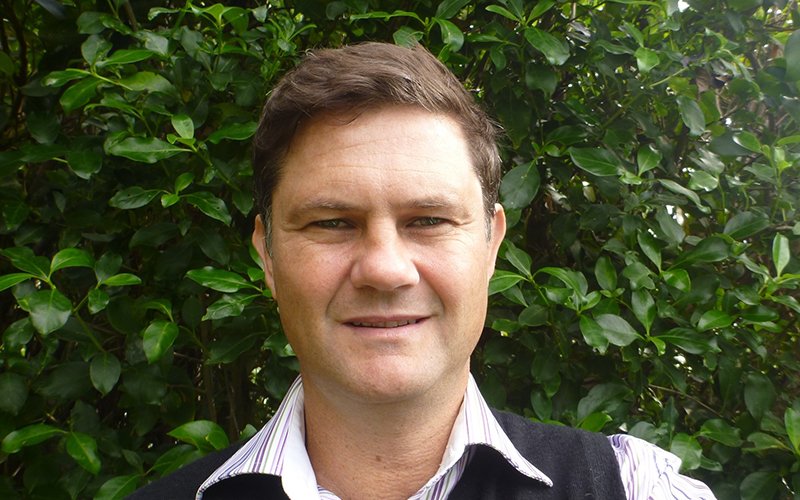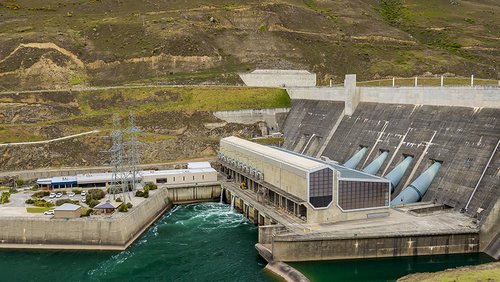6 Dec 2022
We caught up with David Phillips, Professor in Civil Engineering at the Faculty of Engineering at Unitec/Te Pūkenga, New Zealand Institute of Skills & Technology.
What is your role at Unitec/Te Pukenga?
Civil Engineering Assoc. Professor. Which entails lecturing and researching in civil and environmental engineering and liaising with industry to ensure we’re providing current best practice to our students to ensure they’re highly employable when they graduate.
Who or what inspired you to enter the wonderful world of engineering?
I started a Civil Engineering Cadetship at Murray North Consulting when I left school. I worked and also studied part time for my New Zealand Certificate in Engineering. I loved getting straight into a lot of really diverse and interesting projects at work.
In your opinion, what are the benefits of studying engineering as a mature student and what do mature students bring to the classroom?
Having some previous life and work experience really sets mature students up for success, they are fantastic contributors in the lectures and are highly sort after by employers. We have a wide range of mature learners, some of whom are completely changing their careers for a fresh start, some who want to continue on into higher levels of learning and parents returning to the work force after being full time caregivers to their children, and some returning from their overseas experiences who want to get an education in an area that they found whilst travelling overseas.
What have you learnt from your students during your years of teaching?
That Engineering students are good people with values, who really want to make a difference in society.
How do you incorporate Te Ao Māori in your engineering lectures?
Te Ao Māori is in important part of engineering courses at Unitec, and this journey begins with all students being welcomed onto the Te Noho Kotahitanga Marae on the campus with the stunning whare whakairo (carved meeting house) ‘Ngākau Māhaki’. Unitec and Engineering has five Pillars (Pou) that form the framework of learning and support. These are Rangatiratanga (Authority and Responsibility), Ngākau Māhaki (Respect), Wakaritenga (Legitimacy), Kaitiakitanga (Guardianship), Mahi Kotahitanga (Co-operation).
How have you refined your courses, so students have sustainability and climate change at the forefront when designing engineering solutions to problems?
Sustainability and the impacts of climate change are included in the programmes, with specific environmental courses available for students who want to specialise in this area. The latest knowledge and best practice being used in industry and the profession is utilised, to ensure graduates are able to do calculations and designs for projects that provide for the future impacts of climate change and ensure resilience. This could be in areas of waste minimisation, sea level rise and flooding impacts, building resilience to earthquakes and natural disasters, and infrastructure design to name a few areas.

David Phillips. Image: David Phillips
What words would you use to describe engineering students in 2022?
Resilient, diverse, interested, polite, knowledgeable and seeking more knowledge.
What book do you recommend all engineering students read and why?
The Engineering Code of Ethics and guideline as it is so important for engineers to know these principles of good engineering practice.
Why are you a member of Engineering New Zealand?
I am a member as I like to be involved and contribute with a professional group of my colleagues, keep up to date with current best practice and I am very proud of what Engineering New Zealand does for the country.
If you could meet any engineer in the world, who would it be and why?
I am really lucky I got to work and get advice from a legend of an engineer: Roger Glanville, who was a geotechnical and roading lecturer at Unitec for over 40 years and just retired in 2022. He has taught and mentored thousands of engineering graduates who are now out making a difference in society, and who talk fondly of what an Engineering legend Roger is and how he made a big impact on them and their lives.
What is your favourite piece of engineering in Auckland?
I love the Auckland Museum and the blending of the old beautiful building along with the modern addition on the roof with the Grand Atrium Dome. I worked as a stone mason and site engineer in London on buildings like the Museum, and really appreciate the timeless design and preservation of our history mixed with modern usage requirements and a bit of style in design.




